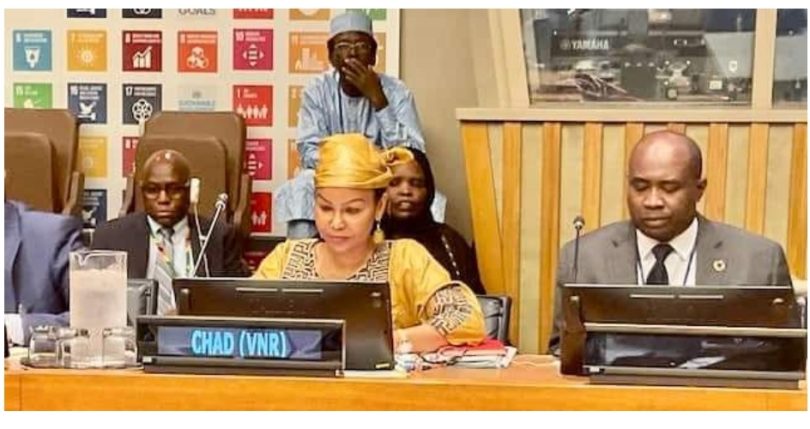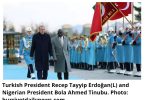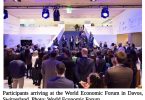Among the many highlights of the forum, the Voluntary National Examination (VNR) presentations always stand out. They provide countries with the opportunity to present their progress, challenges, and strategies in achieving the SDGs. On July 12, 2024, the Republic of Chad presented its 2024 National Voluntary Review, led by Her Excellency Madame Fatima Haram Acyl, Deputy Minister of Finance and Budget in charge of Economy and Planning.
Chad’s session started with the presentation of an insightful video that highlighted the country’s progress so far. Madame Fatima Haram Acyl spoke after the presentation and proudly talked about the collaborative effort that went into compiling the report. Civil societies, local communities, governmental institutions, and locally elected individuals all played a crucial role in providing comprehensive insights and data. This collective effort was a pointer to Chad’s commitment to transparency and inclusivity in its pursuit of sustainable development.

Focusing on five key SDGs—1 (No Poverty), 2 (Zero Hunger), 13 (Climate Action), 16 (Peace, Justice, and Strong Institutions), and 17 (Partnerships for the Goals)—Madame Fatima presented a detailed account of Chad’s progress and challenges. Despite facing significant instability, Chad has made notable strides in improving basic social services, which have increased by 8% from 2020 to 2023. Additionally, the country has created 50,000 decent jobs and improved food security by 2.2%. However, the influx of refugees, with 310,000 entering the country each week, continues to strain resources and exacerbate food insecurity.
To combat climate change, Chad has developed an adaptation plan that leverages its strategic position between the Sahara and Sahel regions to secure financing from the Congo Basin Fund and the Blue Climate Fund to support its initiatives. Furthermore, Chad’s transition to a constitutional government through a national dialogue has significantly boosted SDG 16, promoting peace, justice, and strong institutions.
Regarding partnerships (SDG 17), Chad continues to collaborate with public and private institutions domestically and internationally to enhance its development efforts. Madame Fatima’s presentation emphasized the importance of sustained and inclusive efforts to achieve the 2030 Agenda.
Chad calls on the international community on the migratory impact in the Sahel
Following Ms. Fatima’s presentation, His Excellency Abakar Mouctar, Chad’s Ambassador and Permanent Representative to the UN, raised a crucial question regarding the impact of migration flows on host countries.
After congratulating the countries that presented their VNRs, the Ambassador highlighted the situation in Chad, faced with a massive influx of refugees. “What impact has the migratory flow had on basic services and local communities?” he asked the representative of Mauritania, also a member of the panel.

This question highlights the urgency of a collective response to the migratory challenges affecting the Sahel. Chad, a host country for many refugees fleeing conflicts and insecurity in the region, is seeing its resources and infrastructure put to the test.
Ambassador Mouctar thus recalled the need for increased support from the international community to help host countries meet humanitarian needs and ensure sustainable and inclusive development. The question asked of Mauritania, itself faced with similar challenges, demonstrates Chad’s desire to engage in regional dialogue and find concerted solutions to these cross-border issues.
The migration issue remains at the heart of the debates at the High-Level Political Forum. Chad’s speech served as a strong reminder of the importance of international solidarity to support the most affected countries and guarantee respect for the fundamental rights of all.

Intervention by the NGOs and Civil Society Representative from Chad
Mr. Olivier Noudjalbaye Dedingar, sstainable development advocate and Chad’s civil society representative at the United Nations Economic and Social Council (ECOSOC), pleaded for greater involvement of civil society organizations in the implementation of the Sustainable Development Goals (SDGs) in Chad.

Speaking following the presentation of the 3rd Voluntary National Review of Chad by the Deputy Minister Fatima Haram Acyl, Mr. Noudjalbaye praised the government’s efforts, while highlighting the low participation of civil society in SDG-related initiatives. He began by congratulating Chad on its efforts in delivering the VNR and advancing the SDGs. He emphasized civil societies’ crucial role in implementing the 2030 Agenda but noted their limited involvement in planning and decision-making processes. He insisted on the importance of the concept of “leave no one behind”.
Underlining the crucial role of SDG 16 (peace, justice, and strong institutions) for the achievement of the other objectives and the “Vision 2030, the Chad we want”, Mr. Noudjalbaye concludes his statement by questioning the Deputy Minister, Fatima Haram Acyl on the concrete measures envisaged by the government to promote sustaining peace, social inclusion, gender equality, accountability, justice, and the rule of law in Chad.

Two key questions were also asked by the delegates present at the 10th meeting of the High-level Political Forum:
- What measures will the government take to achieve the SDGs by 2030?
- What factors enabled Chad to ensure their gains?
In response to the first question, Madame Fatima outlined several strategies that have worked, including implementing the national dialogue recommendations, the development of an inclusive national development plan, and ongoing efforts to secure financial partnerships. She stressed the importance of collaboration across all sectors and levels of society to achieve the SDGs. Next, she spoke about the government’s dedication to implementing the recommendations from the national dialogue, which involved over 1,500 participants from all 23 provinces. Chad’s vision for a development plan covering 2025 to 2030 is aligned with the 2030 Agenda and the African Union’s Agenda 2063. This plan involves all provinces, including refugees, and engages the private sector, civil societies, and government institutions. While funding remains challenging, discussions with financial partners, including the International Monetary Fund (IMF), are ongoing to secure the necessary resources.
Before rounding up Chad’s session, she emphasized the importance of international support and partnerships in sustaining Chad’s progress.
As a reminder, the High-Level Political Forum on Sustainable Development (HLPF) is organized under the auspices of the United Nations Economic and Social Council (ECOSOC). A crucial annual event dedicated to reviewing progress and implementation of the Sustainable Development Goals (SDGs). Currently running from July 8-17, 2024, the HLPF brought together world leaders, policymakers, and stakeholders to discuss strategies and share ideas on sustainable development. This year’s theme, “Strengthening the 2030 Agenda and eradicating poverty in times of multiple crises: effective delivery of sustainable, resilient and innovative solutions”, echoes the diverse challenges and opportunities facing nations around the world.
Written by Olivier Noudjalbaye Dedingar, USA/UN Correspondent.








